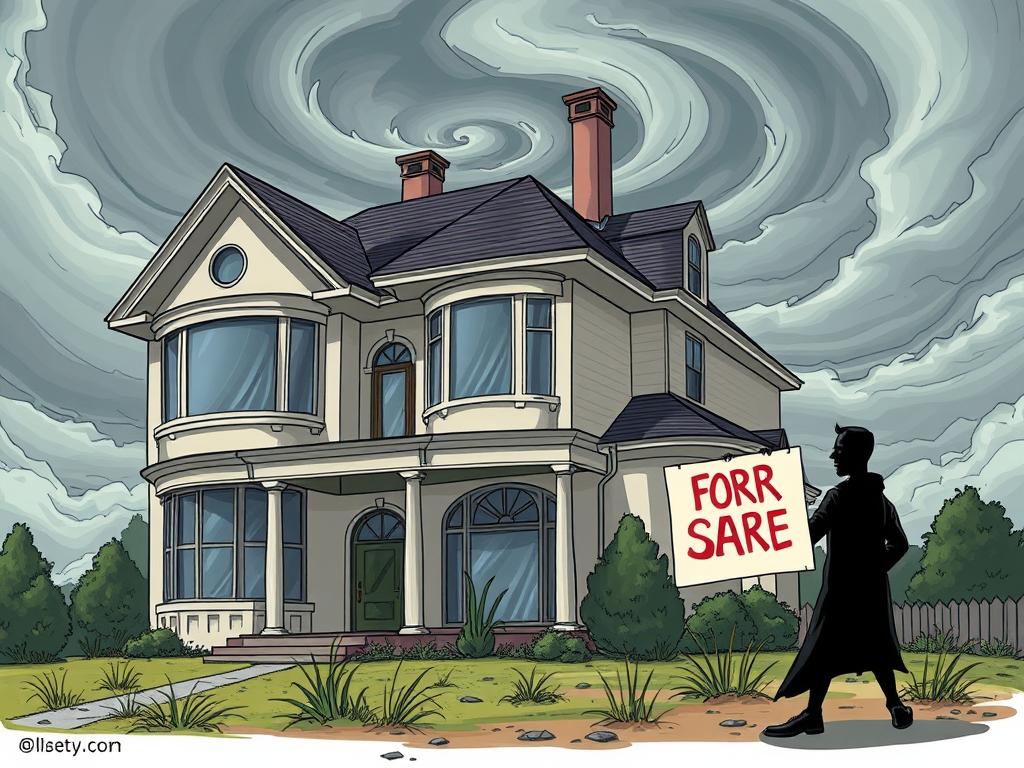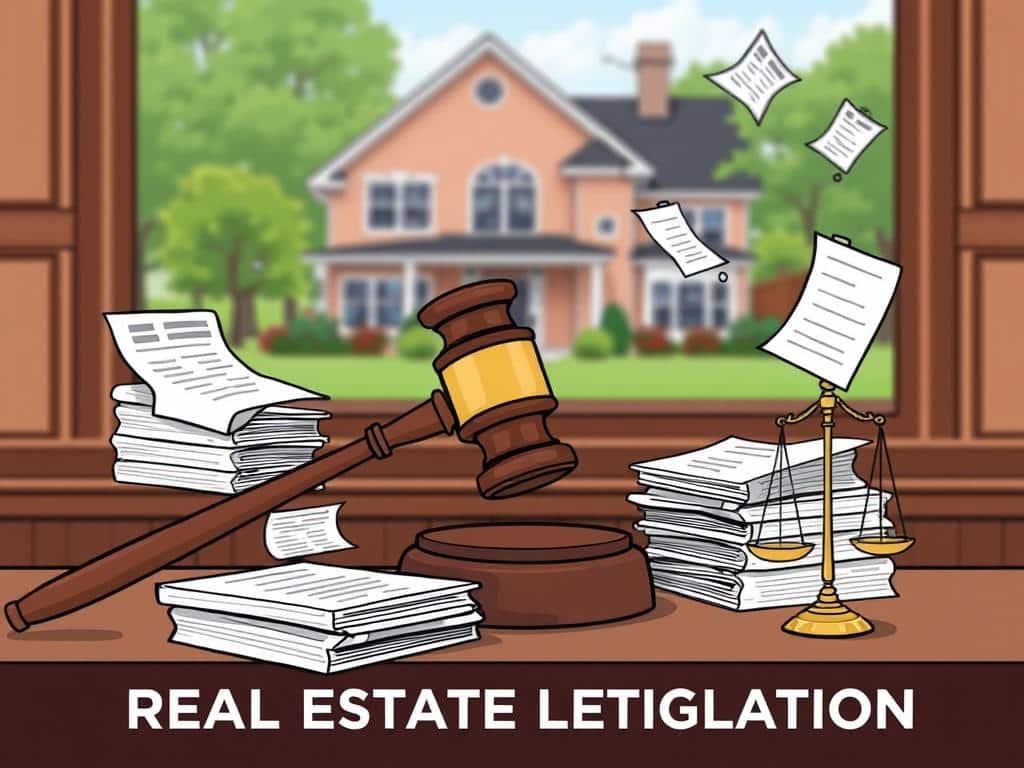Did you know that in Illinois, real estate brokers must ensure that their advertising practices comply with real estate advertising law and the REALTOR® Code of Ethics to avoid legal issues and potential loss of reputation? Misrepresentation in real estate can have significant consequences, both for the agents involved and the clients they mislead.
When engaging in real estate transactions, particularly in California, individuals have recourse should they encounter deceptive advertising by a real estate agent. The California Department of Real Estate (DRE) oversees the licensing and regulation of real estate professionals and can take disciplinary action against those who violate the law. This shows that false advertising isn’t just unethical; it can also trigger serious real estate litigation.
Real estate agents have a duty to represent their clients honestly and act in their best interests. This includes disclosing material property defects and avoiding misrepresentation in real estate. If a real estate transaction suffers due to the agent’s misconduct, victims may seek legal remedies such as monetary damages, either through settling out of court or pursuing litigation.
To navigate such a situation, victims are encouraged to seek the expertise of a local California real estate attorney for guidance and representation. Whether it’s a matter of filing a lawsuit against a realtor or addressing issues of real estate fraud, understanding your legal options is crucial.
What Constitutes False Advertising in Real Estate?
False advertising in real estate involves any misleading or deceptive information that can influence a consumer’s buying or renting decision. This includes purposeful inaccuracies and omissions about a property’s features, prices, or availability. Understanding and adhering to real estate advertising laws is crucial to avoid legal ramifications and maintain trust with potential clients.
Examples of False Advertising
Cases of property misrepresentation encompass a wide range of misleading real estate practices. Common examples include:
- Inflating the size or condition of the property in descriptions.
- Using outdated photos that do not reflect the current state of the property.
- Highlighting amenities that are no longer available or accessible.
- Advertising properties at different prices under selective conditions without clear disclosures.
- Failing to mention critical defects or issues with the property.
Real estate professionals need to ensure that the advertising content accurately represents the properties to avoid potential claims of property misrepresentation.
NAR Code of Ethics
The National Association of Realtors (NAR) enforces a stringent Code of Ethics aimed at fostering honesty and transparency in property advertisements. This code explicitly forbids members from making exaggerated claims. Adhering to these standards helps to uphold the integrity of the real estate profession and minimize incidents of NAR ethics violation.
Key principles under the NAR Code of Ethics include:
- Providing truthful and accurate representations of properties.
- Avoiding misstatements of price, features, or conditions of sale.
- Ensuring all advertising terms are clear and straightforward.
By following these guidelines, real estate professionals not only comply with real estate advertising laws but also promote fair business practices, thereby protecting consumers from misleading real estate practices.
According to the Department of State, New York licenses nearly 120,000 real estate professionals and investigates hundreds of complaints annually. Common issues include mishandling fees, misleading claims, and failure to meet regulatory requirements. These violations can lead to serious consequences, such as suspension or revocation of licenses.
Understanding your obligations and the potential outcomes of false advertising can safeguard your career and ensure consumer trust in your services.
The Legal Framework Around False Advertising
The legal framework surrounding false advertising in real estate is critical for maintaining transparency and trust in the market. This framework is shaped by a combination of federal and state laws, as well as specific regulations enforced by the Federal Trade Commission (FTC). Understanding these laws helps both realtors and consumers navigate their rights and responsibilities.
Federal and State Laws
Within the United States, each state enforces consumer protection laws specific to preventing false advertising in real estate. These laws complement the broader mandates set by the FTC to safeguard against deceptive trade practices. The National Association of Realtors (NAR) also plays a pivotal role by enforcing the Code of Ethics, particularly Article 12, which mandates accurate advertising. Violations can lead to various penalties, including fines and lawsuits from affected parties.

According to New York’s Real Estate Board regulations introduced in May 2019, realtors are prohibited from advertising another broker’s exclusive listings without authorization. This highlights the importance of adhering to local regulations alongside federal guidelines.
FTC Regulations and Penalties
The FTC is the primary federal body regulating advertising practices to ensure FTC compliance. The commission investigates and prosecutes deceptive trade practices and fraudulent advertising, imposing significant penalties on violators. These penalties can include monetary damages, license suspensions, and criminal charges ranging from misdemeanors to felonies, depending on the severity of the infraction. Notably, real estate advertising penalties can escalate, especially in cases involving fraud.
To ensure ethical advertising, the NAR’s Internet Advertising Policy requires Realtors to provide specific details in their ads, such as their name and brokerage information. Unauthorized advertising of MLS listings by non-listing agents is strictly forbidden unless under certain conditions. These regulations ensure that consumers are protected from misleading information and deceptive trade practices.
| Regulation | Entity Responsible | Action Required | Penalties for Non-Compliance |
|---|---|---|---|
| Accurate Advertising (Article 12) | National Association of Realtors | Ensure truthful advertising | Fines, lawsuits, license suspension |
| FTC Act Compliance | Federal Trade Commission | Avoid deceptive trade practices | Monetary damages, criminal charges |
| State Real Estate Laws | State Governments | Adherence to local consumer protection laws | Varies by state, can include fines and legal action |
Ensuring compliance with both federal and state consumer protection laws is essential for upholding the integrity of the real estate market. Adhering to these regulations protects consumers from deceptive trade practices and mitigates the risk of substantial real estate advertising penalties for professionals in the industry.
Common Misrepresentations by Realtors
Realtors in the real estate industry have a duty to provide accurate and honest information to both buyers and sellers. However, real estate deception is not uncommon, with some agents resorting to misleading property descriptions and bait-and-switch tactics, either intentionally or due to lack of due diligence. Understanding these common misrepresentations can help protect you from falling victim to realtor dishonesty.
Misleading Property Descriptions
One of the frequent forms of realtor dishonesty involves false property listings. Agents might inaccurately represent key aspects of a property such as its square footage, lot size, or condition. For instance, a home might be described as “fully renovated” when, in reality, it needs significant repairs. These discrepancies can lead to real estate deception, causing financial harm to potential buyers.

Bait and Switch Tactics
Another prevalent misrepresentation in the real estate sector is the bait-and-switch in real estate. In these cases, an agent advertises a desirable property that is no longer available, intending to lure buyers and then steer them towards other listings that may not meet the original criteria. Such practices are a clear example of real estate deception and can result in substantial frustration and financial losses for those seeking to purchase a home.
When these forms of realtor dishonesty occur, affected parties may seek legal recourse. As noted by the Business Trial Group, misrepresentation is a common underlying factor in lawsuits against real estate agents. If you find yourself a victim of such unethical practices, consulting legal experts specializing in false property listings can provide the guidance you need to pursue your case.
How Much Compensation Can You Get by Suing a Realtor for False Advertising?
Suing a realtor for false advertising can result in financial compensation depending on your case’s specifics. The false advertising lawsuit compensation amount is influenced by factors like financial losses, emotional distress, and punitive damages. Consulting a legal expert can help you determine the potential value of your claim in such situations.
Can You Sue A Realtor For False Advertising?
When it comes to taking legal action against real estate agents for false advertising, there are several factors to consider. False advertising in the realm of real estate typically involves misrepresentation, nondisclosure of defects, or negligence. Given that the vast majority of real estate agents operate honestly and competently, as seen in Texas, the incidence of property fraud claims remains relatively low. However, for those unfortunate enough to encounter misleading practices, legal recourse is possible.
Grounds for Filing a Lawsuit
If you have been a victim of false advertising by a realtor, there are solid grounds for filing a lawsuit. Misrepresentation, such as providing incorrect information at auctions or failing to disclose property liens, can form a strong basis for legal action against real estate agents. Negligence, leading to economic harm, is another common ground for lawsuits. Texas, among other states, outlines specific competencies and disclosure requirements for realtors under Tex. Occ. Code, which, if violated, could substantiate your claim. Attorney Hector Chavana Jr. emphasizes that complaints against real estate agents can also involve significant financial discrepancies, such as creating fictitious invoices.
Legal Remedies Available
Victims of false advertising have several legal remedies available. Filing a complaint with state licensing agencies or the National Association of Realtors (NAR) is a starting point. For cases warranting greater damages, you can file under the Texas Deceptive Trade Practices Act or Texas Statutory Fraud Act. Legal outcomes can range from settlement offers resulting from demand letters to monetary compensation for direct losses. Cases can sometimes even lead to punitive damages. Additionally, real estate compensation may include recovering attorney fees, especially if the lawsuit is taken on a partial contingency fee basis. Furthermore, the NAR Code of Ethics provides for arbitration in disputes, thereby offering another potential avenue for resolving conflicts without going to court.








